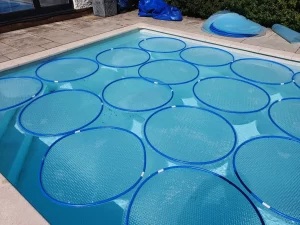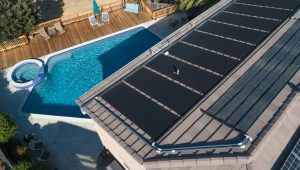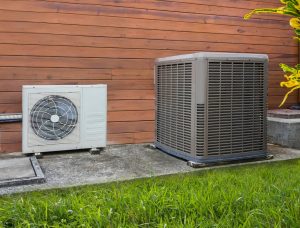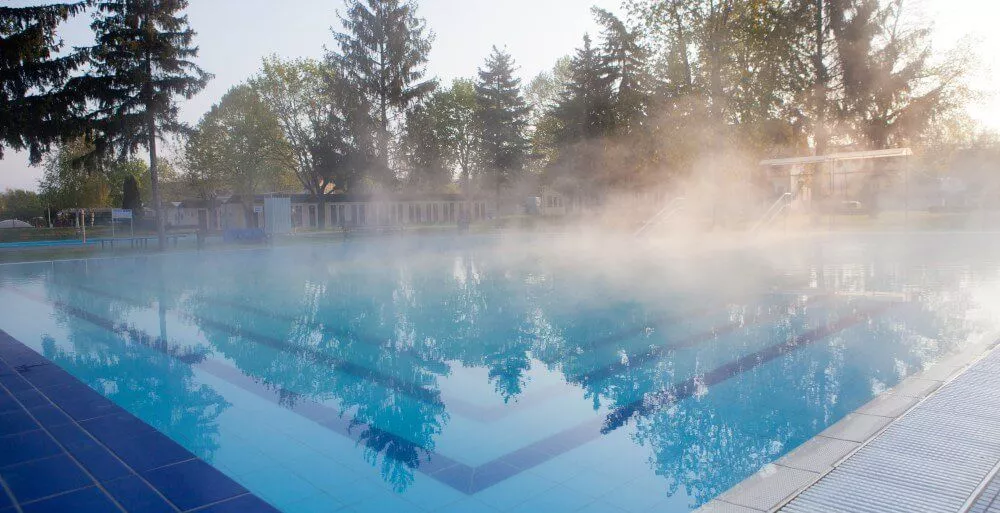Pool Heating is Expensive, but these Cost-Effective Pool-Heating Options may just do the Trick

Who wouldn’t want the thought of diving into a warm pool in the middle of fall or winter? If you think that’s only possible in warmer states or regions, think again. Technology, along with a dash of resourcefulness, make it possible for colder states to enjoy a warm pool dive in the brunt of seasonal changes.
The capability to heat your pool means having additional options for socialization and relaxation. It also increases the value of your property (if you’re planning to sell or rent it) because the pool will be operational for more months.
Of course, pool maintenance in itself is already expensive, so it makes sense for pool owners to look for cheaper alternatives.
Some options included in the list require minimal effort and supplies, while others may require a little bit more than the minimum. Either way, you’ll splash around your personal watering hole for more days and inevitably make your neighbors jealous.
Cheap Ways to Heat Your Pool

Solar blankets and covers

The sun is a free source of energy, but there are times when you wouldn’t want to expose your pool to direct sunlight because it evaporates water.
The United States Energy Department estimates that 70% of energy loss in swimming pools is due to evaporation. You can use a solar blanket or cover to prevent the sun from doing such “damage” to your fun and enjoyment.
These massive plastic coverings work as heat insulators and keep water and chemicals from evaporating, thus keeping the energy and heat loss in check.
There are also liquid pool covers made with fatty alcohols that essentially create a thin layer on the pool’s water surface. It’s more convenient, safe for the skin, and typically cheaper than solid covers.
Solid covers generally retain more heat, but the liquid variants are not so bad, either.
Solar Sun Rings
Solar sun rings work pretty much the same way as solar blankets. The coils are constructed of heavyweight UV-resistant vinyl and operate by insulating air on top and concentrating sunlight on the bottom.
After that, the mechanism collects sunlight and transforms it to heat. Solar rings, in general, may be more adjustable and flexible than solar covers.
Plus, they don’t have to fit over the surface of a pool, a notable prerequisite for blankets and covers.
On the downside, solar sun rings do not perform well in any climate, like pool heaters. Any device that needs sunlight to function is limited during overcast conditions.
Use a Black Hose

The option of using a black hose is DIY in nature, but it could work well in some conditions.
When using a black hose, it must be connected to the pool pump and must have an extra length of 50 to 100 feet (depending on the size of the pool).
Connect one end to the pool pump return and the other to the pool’s hose.
The rest are left to make a giant black coil and left under direct sunlight. It will transfer the heat from the coil to the water and keep the pool warm.
Use Trash Bags
In the case of trash bags, they are basically used as water lily pods across your pool. It is a cheap and simple process that involves using duct tape, foam pool noodles, hula hoops, and other cheap materials.
The idea is to let the black plastic bags draw in heat and transfer it to the pool water.
Heat Exchanger
There are cheaper stainless steel heat exchangers, but the ones made of copper are the best you can get. There are titanium heat exchangers, which are also better than stainless steel when heating water and more durable.
Stainless steel could take up to three full days to heat the water for up to 10 degrees Celsius, while titanium can take just a day. Copper can probably do it in less than 24 hours.
That said, titanium is expensive and there aren’t many copper exchangers around, so stainless steel is the more cost-effective option.
More Expensive Options
Living in chilly and snowy areas would probably do nothing to your pool water but turn it into ice. In that case, you may need more powerful but expensive options.
These machines could burn a little hole in your wallet, but it’s a worthy investment if you love your pools that much.
Heat Pumps
Heat pumps cost less than solar pool heating systems but are expensive to run. It may take over $1,000 a year in gas and at least $2,000 in installation.
Choosing a pump that uses a small amount of energy may cut costs down by a couple hundred bucks, but that’s still considerably pricey.
Solar heating systems require more to install, but you won’t have to worry about running costs. Nevertheless, heat pumps are the no-brainer choice if you live in a place where no sunlight is present for a considerable period.
Windproof Pool Enclosure
Having a windproof pool enclosure basically means building a house around your swimming pool.
The materials and the labor costs could easily add up, but if you want a more environment-friendly option than gas-powered heat pumps, this is it.
The enclosure wouldn’t need additional electricity bills and protects not only against snow but also against wind and debris. This is the option if you want a spa right in the middle of winter!
Final Thoughts
Owning and maintaining a pool requires considerable investments in terms of cleaning. If you want to extend pool season for a few months, you’d have to include more gizmos in the running costs.
Of course, there are relatively cheap options such as heat exchangers, trash bags, and black hose tricks, but these are temporary solutions. On top of that, they may not work in extra chilly regions.
You can install heat pumps and pool enclosures if you want a more permanent fix rather than a band-aid.
Installation costs could get at least $2,000 for heat pumps and $8,000 for the enclosure, depending on the materials used.
But if you hold your pool leisure time in extremely high regard, these are just about




